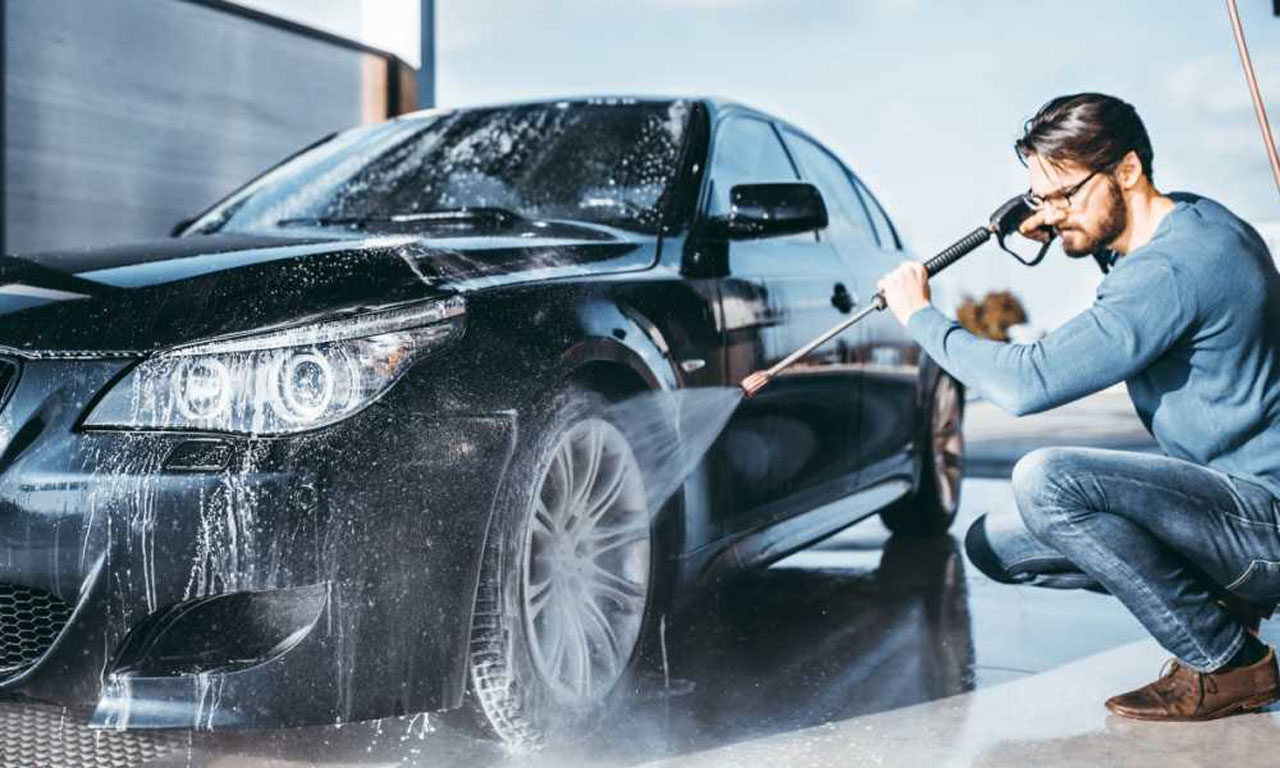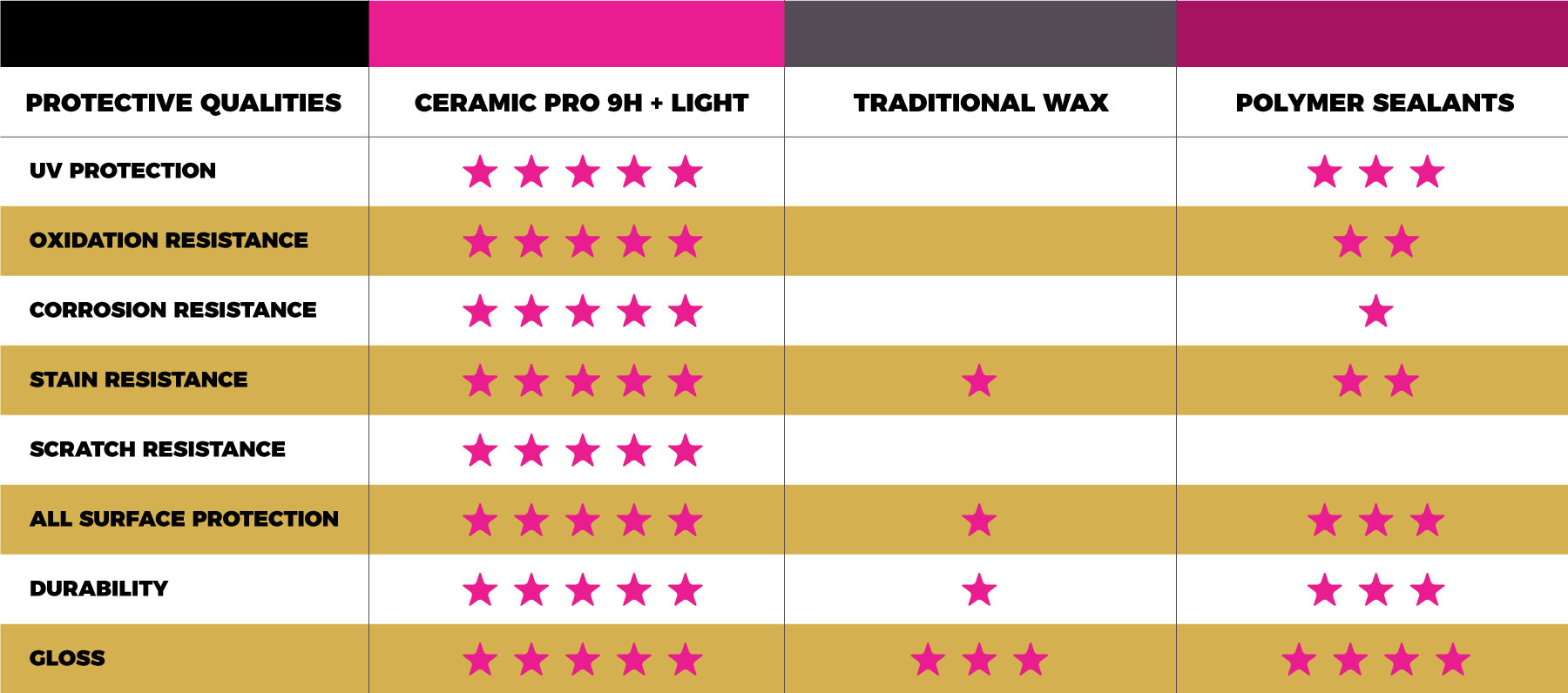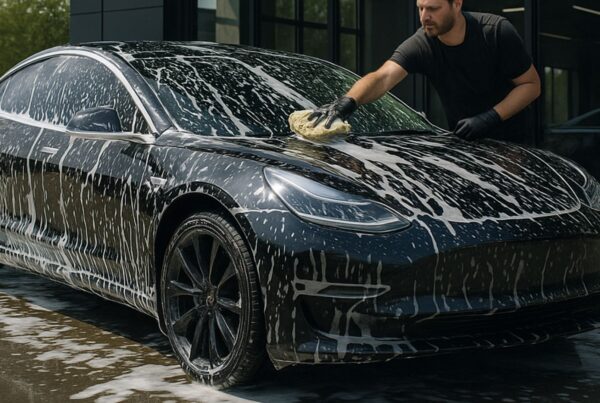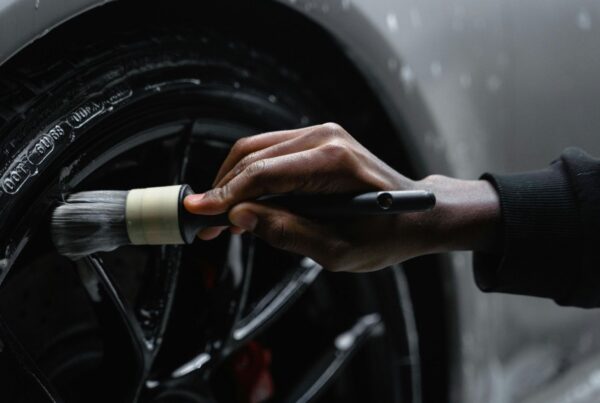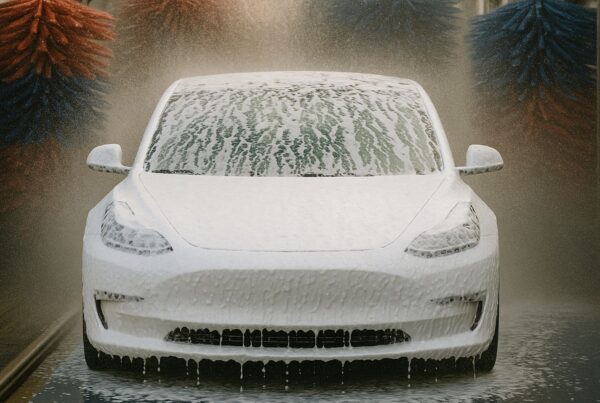If you take pride in writing “wash me” in the dirt packed on your ride’s paint surface and windows – this article might not be worth reading. But if you’re a car owner that likes driving around town in a clean, crisp, and shiny sled, stay tuned – as we’re here to answer one of the most commonly asked car care questions – “when should you wash your car”?
Like keeping your home clean, car washing involves constant attention. Sometimes it’s as simple as picking up the trash inside the entire car to avoid stains and damage to interior floorboards, seats, and trim pieces. In some cases, a quick trip to the touchless car wash followed with a good dry with a high-quality microfiber towel will do the trick.
Nonetheless, washing your car is a task that we all need to do. The question that many vehicle owners ask is how often should it be done? Should you just head to the commercial car wash every week – or nah? Well – the answer might seem rude or matter of fact – but it’s simple – wash the car’s paintwork with soapy water, rinse, then dry when it’s dirty.
There are a few simple tips, hacks, and guidelines you should follow when you decide to wash the outside or clean the inside of your ride. So – let’s break it down.
The Basics of Car Washing
Washing a car is a simple task. The biggest issue that most car owners have is either:
- A: They don’t feel like doing the work
- B: They are restricted by their location to do it themselves
If these two situations apply to you, don’t worry – there are solutions that allow you to keep your car’s exterior clean – without too much effort on your part. But, if you can wash your car at home and you don’t mind putting in a bit of elbow grease, your car will appreciate the love.
Here are the basics:
How Long Will It Take: About 30 minutes of your time.
Skill Level: No experience necessary.
Basic Car Washing Supplies Needed:
- A 5-gallon bucket (or two if you want to do it right)
- A bottle of car wash shampoo (pH Neutral shampoo works best)
- A dedicated wash mitt (use a microfiber cloth, wash mitt, or towel to reduce scratching on car paint)
- A hose with a spray nozzle
- A microfiber drying towel (or a few) – will likewise reduce swirl marks or scratching the car’s finish.
Car Wash Safety Tips
Before you start to wash your car, there are a few things you should consider. First, regular washing a car by hand is not an extreme physical activity. However, if you have limitations for lifting, bending, or other physical movement, by all means – let a professional detailer near you complete your car washing maintenance.
But many of the cleaners, soaps, and sprays used in automotive care are toxic. As such, it’s always best to wear PPE (personal protective equipment) to reduce exposure to eyes, nose, mouth, or open wounds.
Is it a Good Idea to Buy a Car Wash Kit?
If you’re looking for the quickest and easiest way of buying the supplies needed to wash your ride, consider buying a car washing kit. Now, let’s be clear – a car wash kit is much different than a detailing kit. The car wash kit will have a bucket, soap, wash mitt, and sometimes a drying towel. A detailing kit is going to have specialty products – like wheel and tire scrubbers, tire shine, interior cleaners, and glass cleaners.
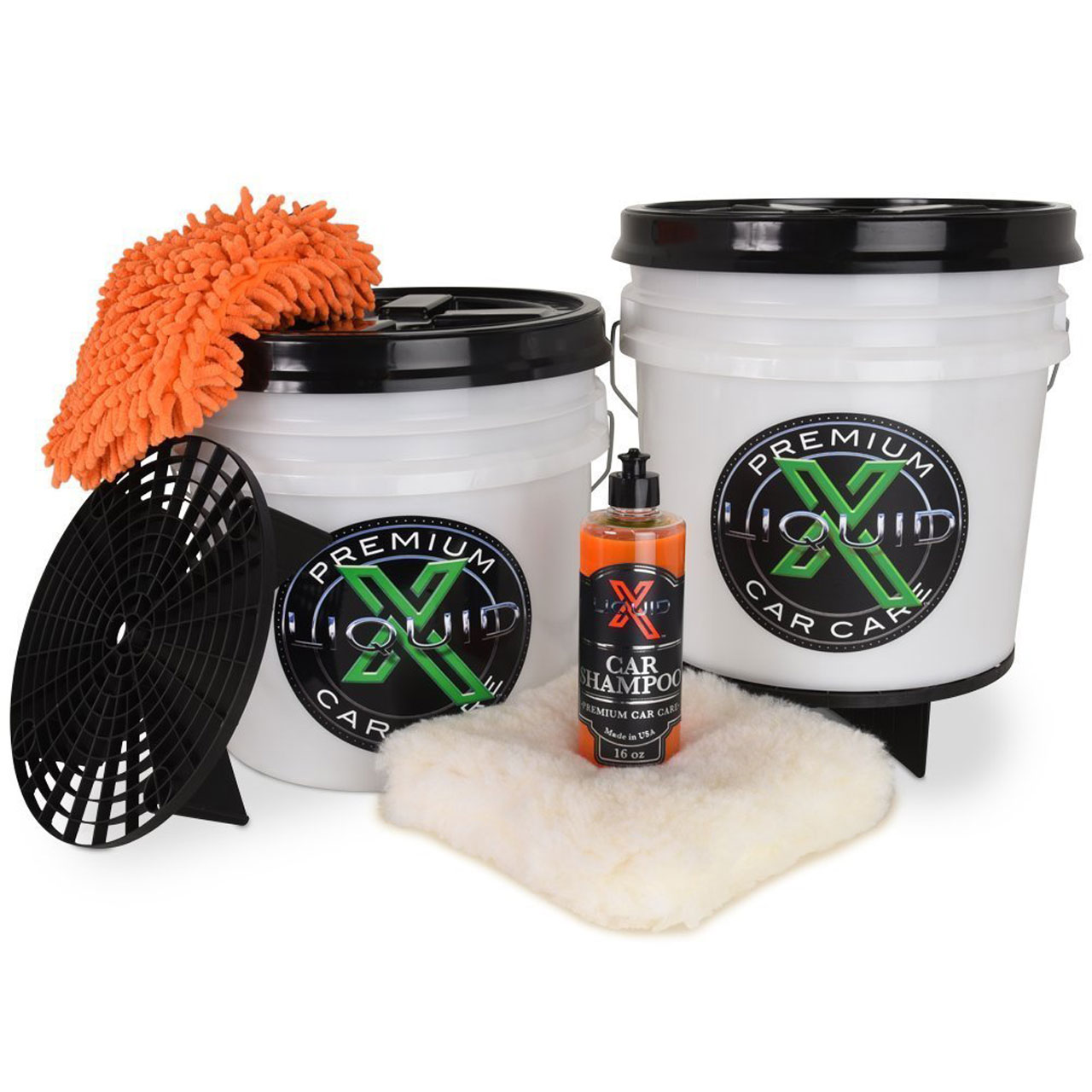
There are dozens of affordable car washing kits available online. The key is to buy one with the bare essentials, and then customize your car shampoos and cleaners to suit the type of paint protection product on your vehicle.
However, for optimal washing and better results, consider buying car wash supplies that are made for the type of paint protection product you have on the vehicle. For example, if you have a ceramic coating, always use a pH neutral, wax-free car shampoo to create wash water that won’t leave any wax film. The added wax is mainly included for lubricity – but can leave a residue on your coating.
For cars with car wax or paint sealants, any pH neutral car shampoo will work fine. However, if you’re going to reapply car wax or sealants – consider using a decontamination car wash shampoo. This is basically a detergent (which is pH positive on the scale) and made to break down oils, grease, and waxes (natural and synthetic).
If you have a vinyl wrap or paint protection film, consider using a similar shampoo as the ceramic coating – pH neutral and wax free. This is especially crucial if you have a high-quality PPF that include a topcoat of ceramic coating (like Ceramic Pro Kavaca).
So – instead of buying a kit, consider purchasing your car wash supplies individually, and pick products that are going to reduce scratching potential, will hold up for extended use, and can help you simplify the process.
Tips for Washing Your Car
Once you determine which supplies are best for your car, truck, or SUV, the next step is to plan your car washing experience. As we stated above, you’ve basically got three choices. First, hand wash yourself, second, hire a professional detailer to do it, third, take it to an automated, touchless car wash.
If you’re going with option A, here are a few important tips that will help reduce mistakes, scratches, and ensure your car ends up being as clean as possible.
- First – Always wear clothing with soft material and no metal. You don’t want to scratch your car with the button fly on your jeans.
- Second – Always wash your vehicle in shade or in low light hours. You NEVER want to wash any car outside in direct sunlight – or if the surface is hot. This will accelerate the drying of soap, lead to hard to remove water spots, and produce a poor wash.
- Third – Don’t forget the wheel wells and undercarriage of the vehicle. You don’t have to go full SEND IT mode with an undercarriage wash and wheel wells. Just make sure to spray them off to remove standing dirt, mud, and brake dust. If you want to wash them with soap, use a dedicated scrub brush and NOT the same media you use with washing the car’s paint job.
- Fourth – Avoid those gas station or cheap car wash facilities. If they use brushes or anything that looks like it’ll touch your vehicle, avoid it like the plague. That’s a quick way to damage your paint – leading to possibly expensive paint correction to remove the damage. Plus, most of their car shampoo is industrial dish soap, and that’s not good for your paint.
- Fifth – When washing, always from top to bottom, left to right, and always one section at a time. It’s best to work in sections no bigger than six-feet by six-feet. Also, don’t use dish soap – even if you’re trying to remove sticky bug splatter or tree sap.
How Often Should You Wash Your Car?
The general rule is to wash your vehicle every two weeks – for preventive maintenance. Obviously, there are situations that may require you to wash the vehicle more frequently – or less often. Here are a few things to consider to maintain a clean car.
Reasons to wash more often may include:
You live in an area that uses road salt or magnesium chloride. If it’s snowed recently, or the road has mag chloride and it rains, you should wash or at the least, spray off the vehicle as soon as possible. These products are accelerators of oxidation.
Frequent animal waste. Living in a desert or climates with a lot of flying insects can lead to an abundance of vehicle strikes. When the bugs splatter on your paint, their bodily fluids comprised of acid will begin to stick to the surface and eat away at the clear coat or other substrates. This same thing applies to bird droppings and tree sap. If these natural contaminants stick on the vehicle, and sunlight heats it up – it will bond to the surface, making it difficult to remove.
Excessive exposure to dirt, dust, and debris. Obviously if you live in a dusty region, washing your car more often than every two weeks is completely acceptable.
Is there a Way to Protect Paint Against Exposure?
The main reason to wash your car is to remove contaminants that can damage the paint finish or other materials. However, if you want to keep your car cleaner, by applying a coating that makes the surface slippery or hydrophobic, you’ll be able to save money on excessive washes. A product like Ceramic Pro 9H nano ceramic coating is an exceptional solution.
This professional-grade ceramic coating is designed to be applied to specific materials. There is a unique formulation for clear coats on vehicle’s paint, one for windows and glass, a coating formula for vinyl and PPF, and even interior ceramic coatings for leather, plastics, and textiles.
The chemical make-up of a professional nano ceramic coating allows the product to cure to 9H hardness, leaving the surface exceptionally flat and hydrophobic. It permits bug splatters, bird droppings, tree sap, dirt, dust, and other debris to slide off with little effort. In fact, in most cases, light dust and dirt that makes your car dirtier will blow off the vehicle while you’re driving down the highway.
An automotive nano ceramic coating does not remove the need to wash – in fact, it should be washed every two weeks like we described. However, it will protect your vehicle, reduce the potential of scratching, and enhance the luster of your paint and other materials.
If you’d like to explore the facts about ceramic coatings or receive a free estimate for any of our affordable packages, please click the button below.



